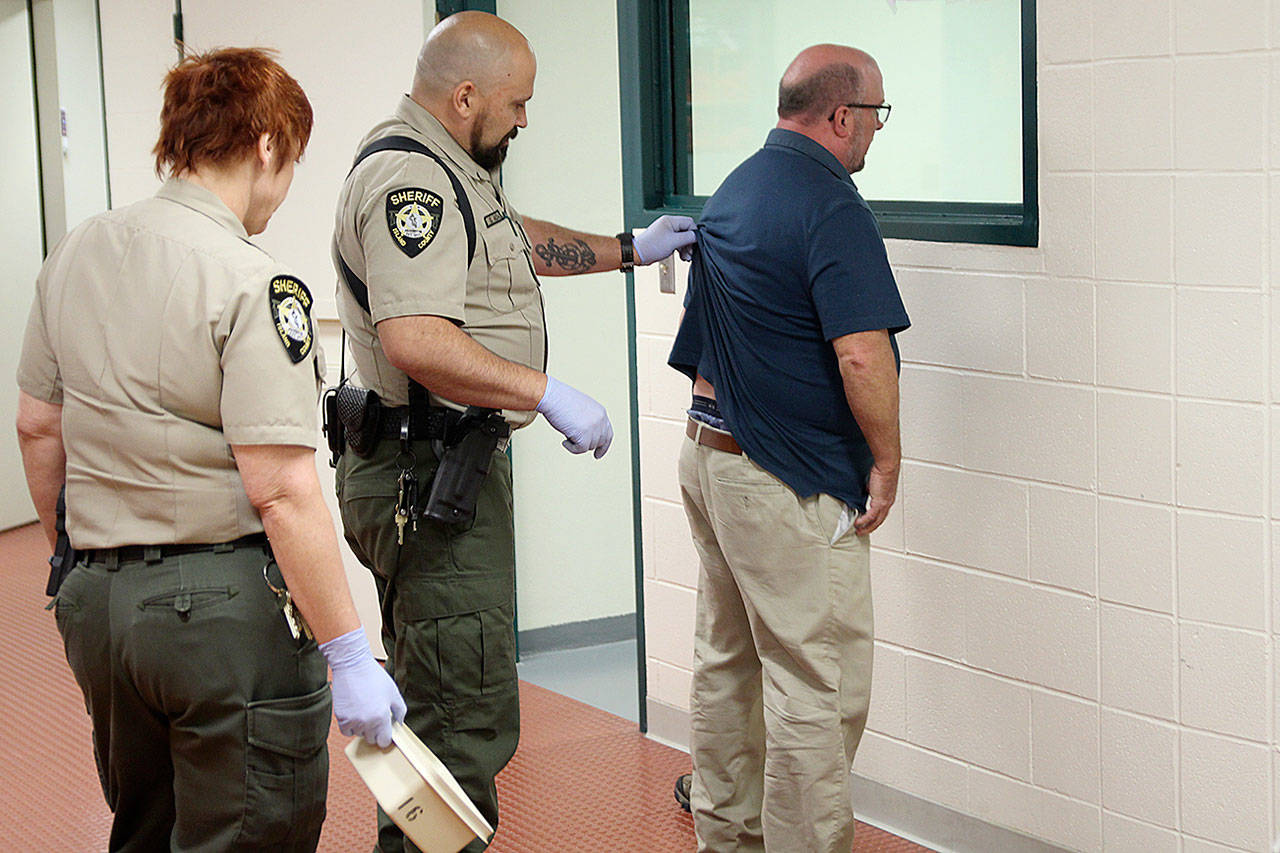Impressive progress has been made in improving the management and operation of the Island County Jail, a consultant concluded.
Phil Stanley released a final report this month on his “Organization and Operations Review” of the 58-bed jail. Island County Sheriff Mark Brown first hired Stanley, an experienced corrections facility manager, in 2015 to look at the operation of the jail and make suggestions for improvements after 25-year-old inmate Keaton Farris died from dehydration.
Stanley called for a long list of proposed changes to the jail, some of which were already implemented by the time the report came out in October of that year.
The final report reviews the status of the recommendations.
While Stanley did outline some concerns, by and large, he found that significant improvements had been made.
“I am impressed by the collective work that has been done to provide Island County with a jail that provides humane care for individuals who are incarcerated,” Stanley wrote.
Among the changes was an increase in staffing, the adoptions of policies and procedures, increased staff training, more complete video monitoring and more services for inmates. Much of the focus was on improvements to mental-health and medical services within the jail; the jail now has one full-time mental-health staff person and two full-time nurses.
More change is on the way. Jail Chief Jose Briones said he hopes to get the facility accredited through the Washington Association of Sheriffs and Police Chiefs by the end of the year, which will make it just the third jail in the state to do so. And he hopes to start a work crew program in the near future.
In the longer term, he plans to work within the law-and-justice community to begin more diversion-type programs that will help inmates — especially those with substance abuse or mental health problems — cope after their release from jail.
“What we do with them in here can have an effect on their lives out there,” Briones said.
The jail will also be part of a pilot program in which inmates with mental-health issues can be assessed by professionals at Western State Hospital. It will mean inmates can be seen by the mental-health professionals “in days instead of weeks,” Briones said.
The commissioners approved $858,000 in additional funding for the jail since 2015 to implement the improvements, according to Island County Budget Director Elaine Marlow. About $758,000 of that is an ongoing, annual expense. Briones is asking the commissioners for two additional corrections deputies and a control room worker in the 2018 budget.
He plans to bring televisions into the jail for the first time. They will be funded from commissary money, which can only go to things that benefit inmates. No taxpayer money will be used.
“If you don’t have a form of entertainment in a corrections setting, inmates are going to find their own entertainment,” he said.
One of the challenges facing the jail is that it’s a 58-bed facility that average 70 inmates a day. As a result, the jail doesn’t hold people brought in on misdemeanor warrants unless they are domestic violence related.
Stanley’s report says that a handful of his recommendations weren’t completely implemented. The jail, for example, has two nurses, but he writes the “ideal staffing” would be three nurses in order to ensure there’s always a nurse on duty during the daytime.
Sheriff Brown fulfilled the first recommendation in Stanley’s report in hiring Briones two years ago after conducting a statewide search. Briones was a captain at the Monroe Correctional Complex’s Special Offenders and Intensive Management Group. He brought a modern and progressive approach to corrections to the jail.
Brown said he’s pleased with all the progress. The jail, he said, is now “more organized, more policy driven.” He and Briones both credit the jail staff for the improvements.
“It’s truly a team over there,” Brown said. “That’s the way it has to be. A collaborative team.”
Briones said he is proud the jail has a low incident rate, which he feels is a result of the culture among the staff and the way they treat inmates. While guards at some other jails regularly use Tasers on inmates, for example, it’s never happened while he’s been on the job.
“I consider it kind of a model for other jails to follow,” he said.



